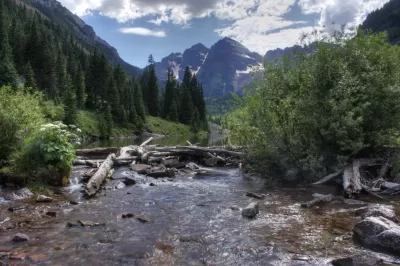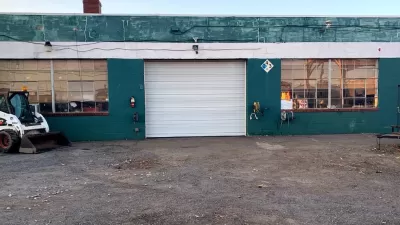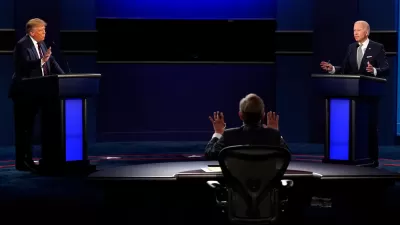Both the presidential election and numerous state and local ballot measures will determine the future of environmental policy in the United States.

Four more years of the Trump administration or a win by former Vice President Jose Biden would have drastically different consequences for the nation's "bedrock environmental law," the National Environmental Protection Act (NEPA), according to an article by Jessica Kutz.
For insight into the environmental policy consequences of Trump's first four years in office, Kutz interviews Dinah Bear, an environmental lawyer and consultant based in Tucson, Arizona. Bear expresses concerns about the narrowed scope and application of NEPA as a result of changes made during the Trump administration.
"The changes fundamentally mischaracterize the purpose of NEPA," says Bear. "The original regulations pointed out that the purpose of NEPA was essentially to try and implement the country’s environmental policies. Now, the new regulations say that agencies have satisfied NEPA if they’ve considered the relevant environmental information and the public has been informed regarding the decision."
A win by Biden would allow the new administration to restore and rejuvenate NEPA, according to the interview.
For a broader review of the many environmental laws that will be decided in local and state elections today, see also an article by Heater Hansman, which identifies ballot measures and other races "that will have wide-ranging impact on wildlife, water rights, renewable resources, and more."
Hansman previews elections to watch in Alaska, Arizona, Colorado, Florida, Michigan, Montana, Nevada, and Washington—varying from ballot propositions to ballot questions to races for Congress, state legislatures, and governor's offices.
FULL STORY: Trump gutted NEPA regulations, but a Biden presidency could restore them

Alabama: Trump Terminates Settlements for Black Communities Harmed By Raw Sewage
Trump deemed the landmark civil rights agreement “illegal DEI and environmental justice policy.”

Planetizen Federal Action Tracker
A weekly monitor of how Trump’s orders and actions are impacting planners and planning in America.

Why Should We Subsidize Public Transportation?
Many public transit agencies face financial stress due to rising costs, declining fare revenue, and declining subsidies. Transit advocates must provide a strong business case for increasing public transit funding.

Understanding Road Diets
An explainer from Momentum highlights the advantages of reducing vehicle lanes in favor of more bike, transit, and pedestrian infrastructure.

New California Law Regulates Warehouse Pollution
A new law tightens building and emissions regulations for large distribution warehouses to mitigate air pollution and traffic in surrounding communities.

Phoenix Announces Opening Date for Light Rail Extension
The South Central extension will connect South Phoenix to downtown and other major hubs starting on June 7.
Urban Design for Planners 1: Software Tools
This six-course series explores essential urban design concepts using open source software and equips planners with the tools they need to participate fully in the urban design process.
Planning for Universal Design
Learn the tools for implementing Universal Design in planning regulations.
Caltrans
Smith Gee Studio
Institute for Housing and Urban Development Studies (IHS)
City of Grandview
Harvard GSD Executive Education
Toledo-Lucas County Plan Commissions
Salt Lake City
NYU Wagner Graduate School of Public Service





























